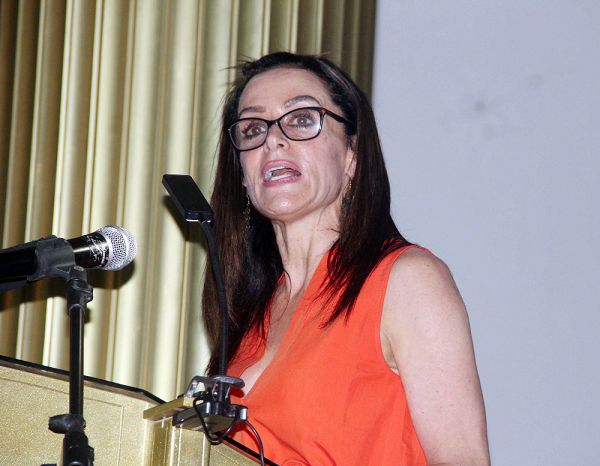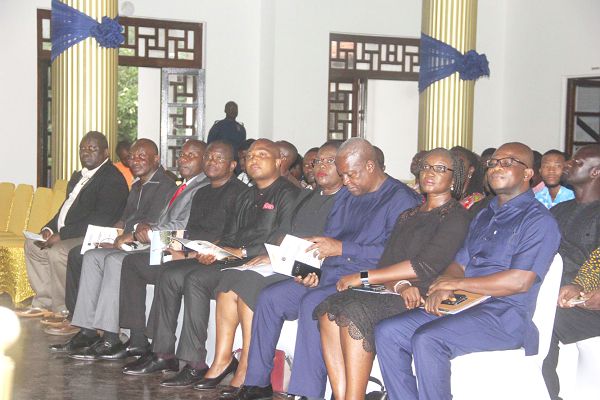
‘Frown on deep-rooted prejudice, discrimination against women’
The President and Chief Executive Officer of KRL International in the United States of America (USA), Ms K. Riva Levinson, has challenged African politicians to frown on deep-rooted prejudice, dislike or discrimination against women.
She said sexism remained a fundamental impediment to women’s participation in politics in Africa, stressing, “exposing it and shaming those who perpetrate it should be a shared obligation of men and women alike who wish to see the continent continue its unstoppable march towards participatory democracy.”
Levinson threw the challenge when she delivered the 2019 Aggrey-Fraser-Guggisberg Memorial Lecture on the theme: “The future of democracy in Africa”.
Upsurge of women in political
Speaking on the topic, “Power from the Margins: Opening African Political Systems to Women, Youth and Other Disrupters,” she said the emergence of women and youth in politics was a global trend that had witnessed the upsurge of women holding political positions.
“In the last two decades, sub-Saharan Africa has seen impressive break throughs in women’s political representation in national legislative bodies.
“According to the UN, the number of female legislators on the continent grew from 9.8 per cent in 1995 to 23.2 per cent in 2016.
In comparison, Europe, excluding the Nordic nations, comes in at 24.3 per cent and the Americas at 27.7 per cent,” Ms Levinson stated.
At the national level, she said five of the world’s top 15 countries with a high number of women serving in Parliament were found in Africa, explaining that Rwanda, under the leadership of President Paul Kagame, stood out with the highest ratio at 61 per cent, followed by South Africa, Senegal, Namibia and Mozambique.
Women at executive branch
“But true political power in Africa remains vested in the executive branch and here, the gains have been less
“Despite two decades of women empowerment, there is no single democratically elected female head of state on the continent, with the retirement of Ellen Johnson Sirleaf, the former President of the Republic of Liberia from office in 2018.

“Sahle-Work Zewde, while historic in her own right as the first woman President of Ethiopia, was appointed by the Prime Minister while the other woman serving at the top political level in Africa, Prime Minister of Namibia’s Saara Kuugongelwa, was likewise not elected to her office,” Ms Levinson said.
She said at cabinet appointments across the continent, there were a few exceptions where women were rarely given the top ministries, such as Finance, Foreign Affairs, Defence, Commerce and National Security, adding, “more often, you find them at Gender, Youth and Sports, maybe Health and Social Welfare.”
Youth in politics
On youth participation in politics, she said the entry of the youth into national political competition was a product of ‘activist generation’ that had gone to the streets in protest.
“I call them democracy’s keepers while Afrobarometer has designated them ‘dissatisfied democrats’.”
Ms Levinson charged students and young people in Africa to use their collective voice and power to advocate for change.
Elders
She observed that Africa had a celebrated tradition of revering its elders, respecting their wisdom and seeking their guidance, but was quick to observe that such a value should not get in the way of the emergence of younger political leaders.
“I hear it all the time, ‘the older generation will not accept to be guided by a youth,” she contended.
Ms Levinson observed that for Africa’s democracy to grow, political parties must begin to rethink how they conducted their primaries and set targets for women and youth candidates, adding that Africa needed fundamental electoral reform.
